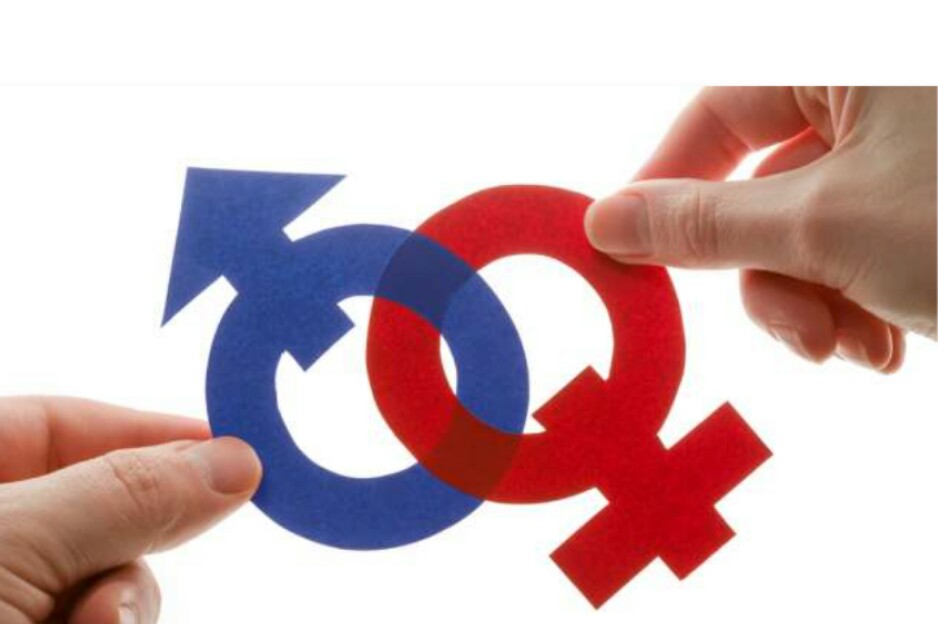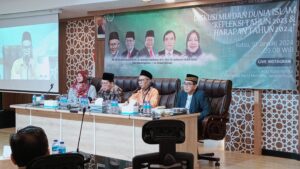Jakarta, MINA – The Indonesian Ulema Council (MUI) has issued Fatwa Number 3 at the seventh MUI National Deliberation in 2010 concerning Changes and Perfection of the Genitals.
The fatwa is changing the genitals from male to female and vice versa is unlawful, because this includes changing the creation of Allah Subhanahu Wa Ta’ala.
“Basically Allah created humans with perfect physical form. Either physically as a man or a woman,” said Secretary of the MUI Fatwa Commission, KH Mifahul Huda in a written statement on Monday.
He explained Allah has created humans from male and female, although some of them are imperfect in their gender.
Also Read: Verses of the Universe in Gaza: The Unyielding Light of Faith
In the study of fiqh, he said, it is called khunsa, namely people who have double genitals. In this study of fiqh, khunsa is divided into two, namely khuntsa musykil and khuntsa ghairu musykil.
“Both of them have double genitals but the (khuntsa) ghairu musykil has a stronger tendency towards one gender. For example, urine comes out of the penis or vice versa out of the vagina,” he said.
While khuntsa is abstruse, according to him, it is very difficult to know whether he is a boy or a girl. Khuntsa musykil can usually only be known after adulthood or puberty by showing physical signs. Like women who are characterized by large physical hips or breasts that expand. While men are characterized by mustache and other fur.
Miftahul reminded that mukhannats are not allowed or whose behavior is different from their gender. It is highly condemned in Islam. Allah cursed men who behave like women and vice versa.
Also Read: Prophet Sulaiman Alaihi Salam, the Greatest Muslim King of All Time
For this reason, Miftahul stated that it is permissible to perfect the genitals for those who have double genitals or khuntsa.
“Remember to perfect, not change the genitals. For example, he has multiple genitals, but he tends to be physically more male, perfected to become a male or vice versa, it is permissible,” he said.
“While changing the genitals by means of surgery or hormone injection, it is unlawful because it changes God’s creation,” he stressed.
Miftahul explained many fiqh laws are related to khuntsa starting from covering the genitals, where to pray or not to become an imam or not for men or women.
Also Read: Imaam Yakhsyallah Mansur: Surah At-Tin Indicates the Command to Liberate Al-Aqsa
“Furthermore, marriage is whether the status is male or female, the distribution of inheritance, and including the management of the body when it dies. How to bathe it, shroud it, pray it, then return it to its initial status when it was born. If a transgender changes their genitals. So it is returned to the origin of its creation, whether it is male or female,” he said.
He appealed to Muslims to be grateful for God’s given creation, God has the power to create perfectly or imperfectly. For those who are imperfect, such as those who have multiple genitals, there are many solutions in the literature on fiqh studies.
He reminded that Islamic law strictly prohibits behavior that violates its nature. For example, for example, those who are male but behave like women or vice versa. This is strictly prohibited by religion.
“And such a trait is that it can cause mental illness that must be avoided and can encourage someone to do things that are forbidden by God, such as homosexuals, both lesbian and gay,” he said. (T/RE1)
Also Read: Imaam Yakhsyallah: Nurture Love for the Prophet, One Will Be with Whom One Loves
Mi’raj News Agency (MINA)



































 Mina Indonesia
Mina Indonesia Mina Arabic
Mina Arabic